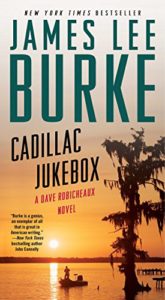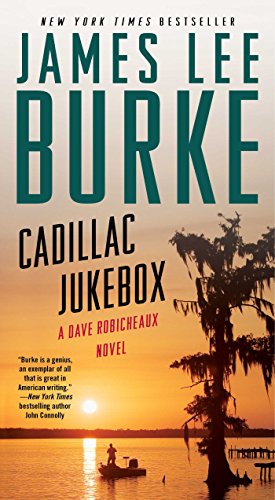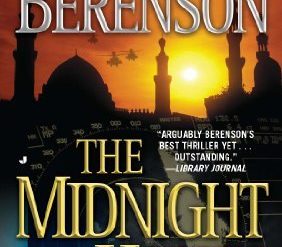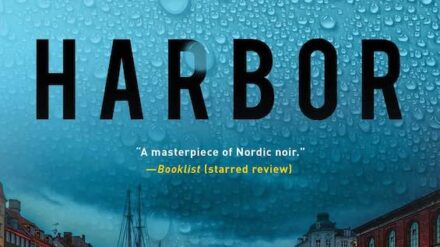
Veteran detective Dave Robicheaux of the Iberia Parish Sheriff’s Department is reluctantly drawn into a case involving the decades-old assassination of Louisiana’s leading NAACP leader. Aaron Crown is serving time for the murder but protests his innocence, and a Hollywood film crew seems bent on exposing the injustice of the case. Crown wants Dave to investigate. Simply visiting the man in prison opens up a hornet’s nest of mobsters, crooked politicians, and other assorted lowlife. This is Louisiana noir by James Lee Burke, the masterful stylist of the craft, who can equal anything written by Raymond Chandler, Dashiell Hammett, or Elmore Leona
In Cadillac Jukebox, the ninth in the Dave Robicheaux series, Burke’s familiar characters all reappear. Dave’s second wife, Bootsie, and their adopted Salvadoran daughter, Alafair, now 14, and the three-legged raccoon she keeps as a pet. Batist, Dave’s African-American partner in the bait and boat-rental business they operate on Dave’s bayou-facing home property. His violence-prone former partner on the New Orleans Police Department, Clete Purcel, now operating on the fringes of society as a bond enforcer and private investigator. As always, the notorious Giacano crime family lurks in the background. But the novel features a host of unique new characters as well, from former KKK member Aaron Crown to the probable new Governor and his wife to a large collection of lowlife characters with names like Mookie Zerrang, Short Boy Jerry, Mingo Bloomberg, No Duh Dolowitz, and Wee Willie Bimstine.
Cadillac Jukebox (Dave Robicheaux #9) by James Lee Burke ★★★★☆
Burke’s facility with the English language never falters, whether describing the lush landscape of his home state or musing about Dave’s lot in life. “As a police officer,” he writes, “you accept the fact that, in all probability, you will become the instrument that delivers irreparable harm to a variety of individuals. Granted, they design their own destinies, are intractable in their attitudes, and live with the asp at their breasts; but the fact remains that it is you who will appear at some point in their lives, like the headsman with his broad ax on the medieval scaffold, and serve up a fate to them that has the same degree of mercy as that dealt out by your historical predecessor.”
And here is Burke describing the family of an incidental character in the tale. “His twin sister achieved a brief national notoriety when she was arrested for murdering seven men who picked her up hitchhiking on the Florida Turnpike. The mother, an obese, choleric woman with heavy facial hair, was interviewed by CBS on the porch of the shack where the Hatcher children were raised. I’ll never forget her words: ‘It ain’t my fault. She was born that way. I whipped her every day when she was little. It didn’t do no good.”
No wonder Stephen King gushes about Burke’s prose style! The Dave Robicheaux novels transcend the bounds of the detective novel. If anything can properly be called literature, this is it.
For related reading
This is one of the many Good books about racism reviewed on this site.
You might also enjoy my posts:
- Top 10 mystery and thriller series
- 20 excellent standalone mysteries and thrillers
- 30 outstanding detective series from around the world
- Top 20 suspenseful detective novels
- Top 10 historical mysteries and thrillers
And you can always find my most popular reviews, and the most recent ones, on the Home Page.



























